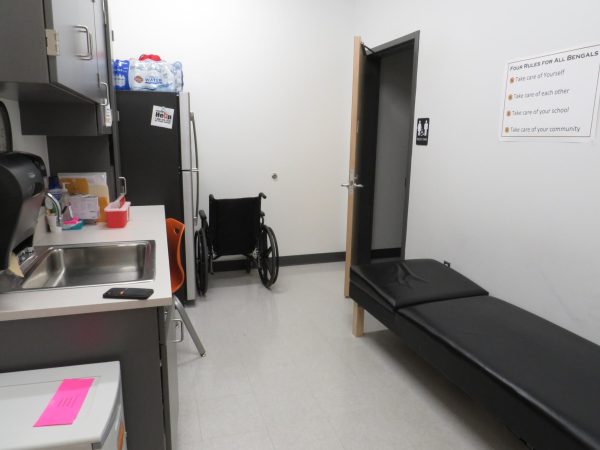New Tennessee bill bans gender-affirming healthcare
To add to a long list of acts against the LGBTQ+ community, especially the transgender community, Tennessee has recently passed a bill that bans transgender youth from accessing gender-affirming care. Last September, Tennessee Governor, Bill Lee made a statement claiming that the Vanderbilt pediatric transgender clinic raised “serious moral, ethical and legal concerns.” Many supporters of this bill agreed that this clinic allowed for “permanent, life-altering decisions that hurt children” and “policies that suppress religious liberties, all for the purpose of financial gain.”
The clinic responded by saying that these accusations were built on “misrepresentative facts.” The clinic explained the reason that it was started was that “transgender individuals are a high-risk population for mental and physical health issues and have been consistently underserved by the US health system.” Clinic officials also stated that they “require parental consent to treat a minor” and “never refuse parental involvement in the care of transgender youth who are under age 18.” To back their policies up and to counter argue the claim that their practices were a case of “moral concern,” the clinic explained that their policies “allow employees to decline to participate in care they find morally objectionable, and do not permit discrimination against employees who choose to do so.” In this same statement, the clinic assured that this moral objection could include, “personal or religious beliefs which do not support gender-affirming care for transgender persons.”
Lawmakers made the topic of gender-affirming health care a priority, and the discussion of the new bill was the first to be brought up in their new session. The bill requires procedures to be halted except for specific circumstances. The bill “prohibits a healthcare provider from knowingly performing, administering, or offering to perform or administer, a medical procedure for the purpose of enabling a minor to identify with, or live as, a purported identity inconsistent with the minor’s biological sex, or treating purported discomfort or distress from a discordance between the minor’s biological sex and asserted identity.” The only exceptions are if the medical procedures are being “used to treat a minor’s congenital defect, precocious puberty, disease, or physical injury, or if the performance or administration of the medical procedure began prior to July 1, 2023, and concludes on or before March 31, 2024.” The bill also “prohibits a person from knowingly providing a hormone or puberty blocker to a minor if the provision of the hormone or puberty blocker is not in compliance with the proposed legislation.” In the simplest terms, this bill will not allow healthcare providers to perform procedures that will enable a minor to live with an identity that is not consistent with their biological sex. The only gender-affirming healthcare that will be provided will go to treat a cis-gender minor’s congenital defect, a disease, or physical injury that they endured.
Even after pleas from anti-supporters of this bill and the Human Rights Campaign called the bill part of “a larger war against the LGBTQ+ community,” the Senate passed it last week with an overwhelming vote of 26-6. Now that the bill has been passed by the House of Representatives and is supported by the state’s governor, it is expected to take full effect on July 1, 2023.
Your donation will support the student journalists of Fuquay-Varina High School. Your contribution will allow us to purchase equipment and cover our annual website hosting costs.





































